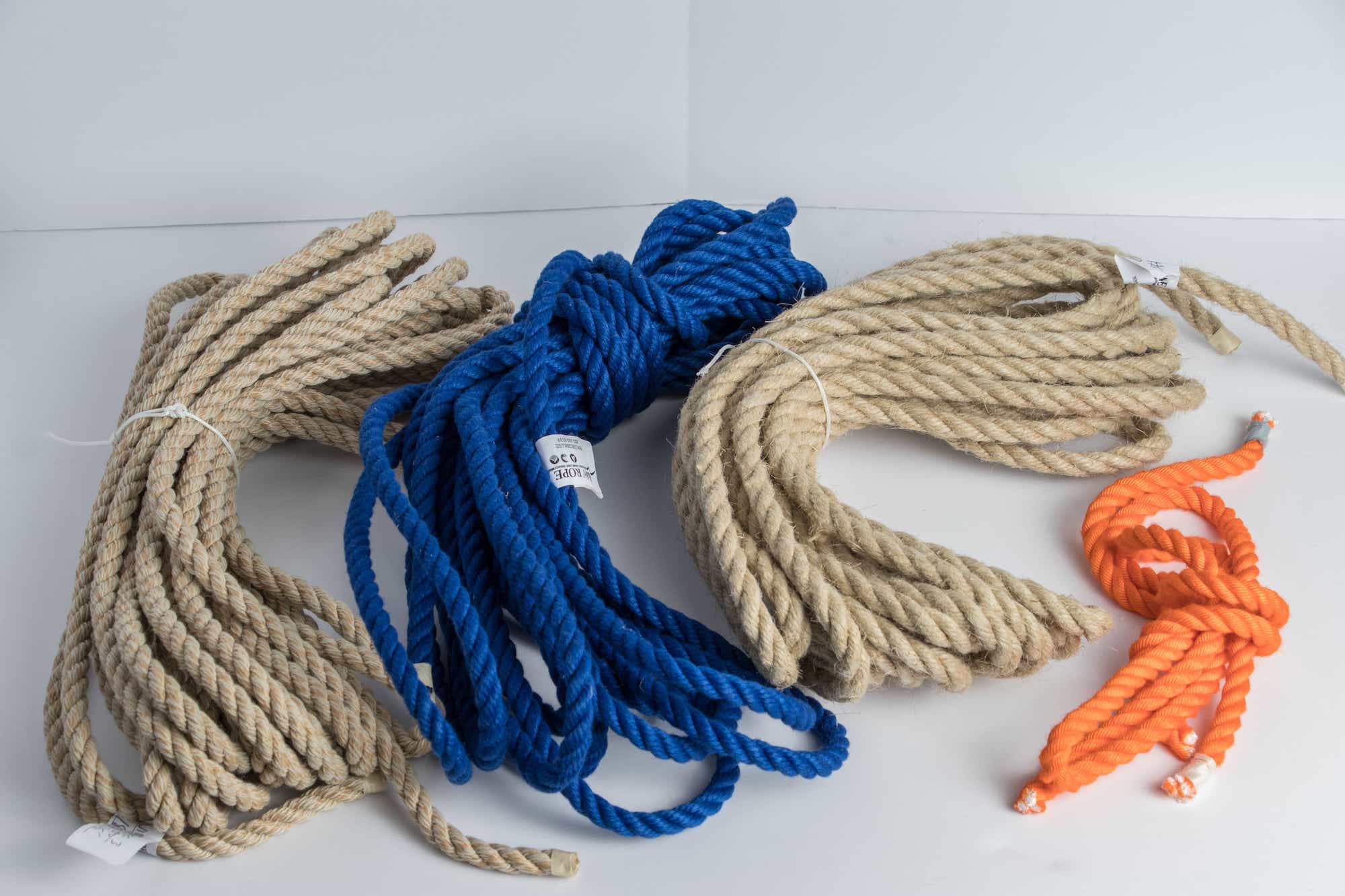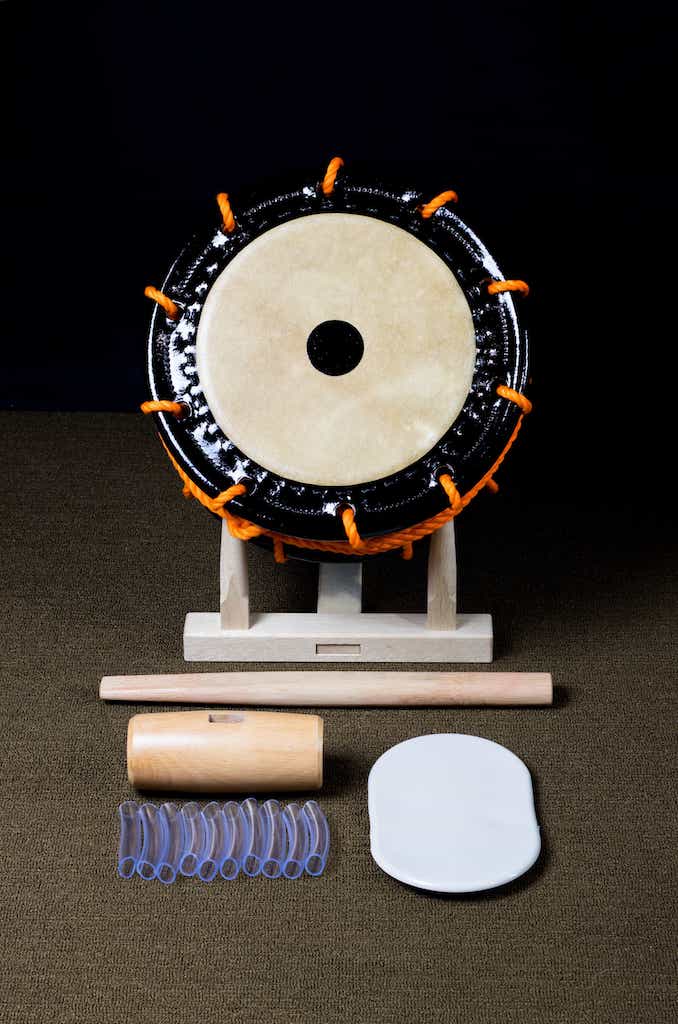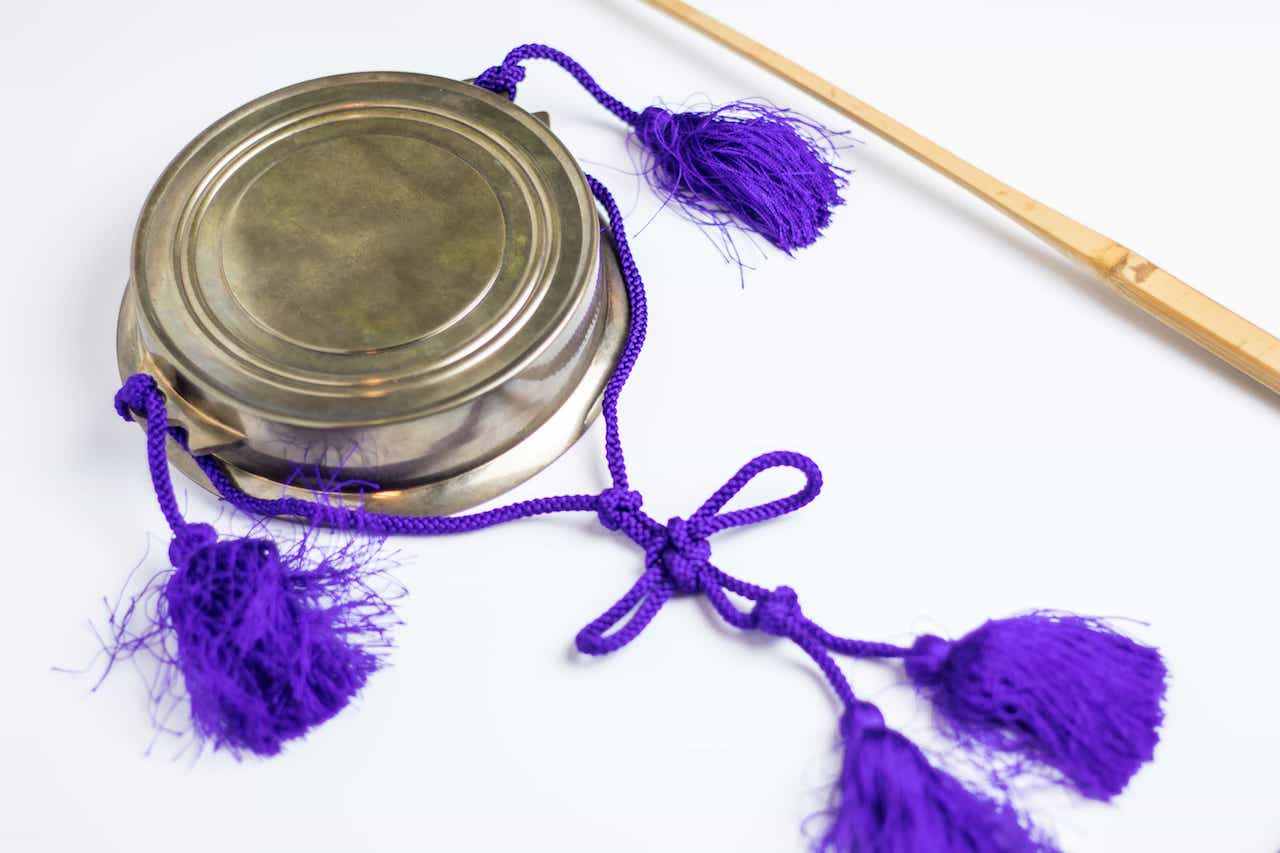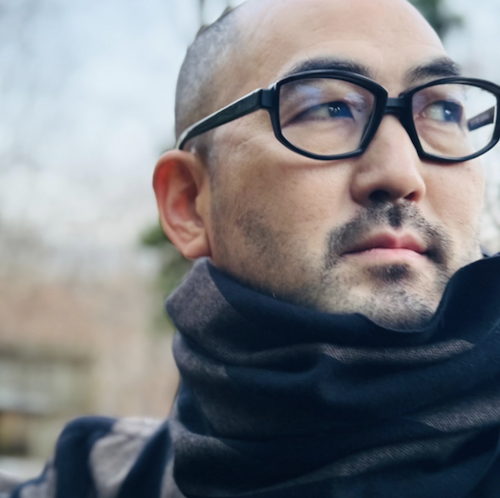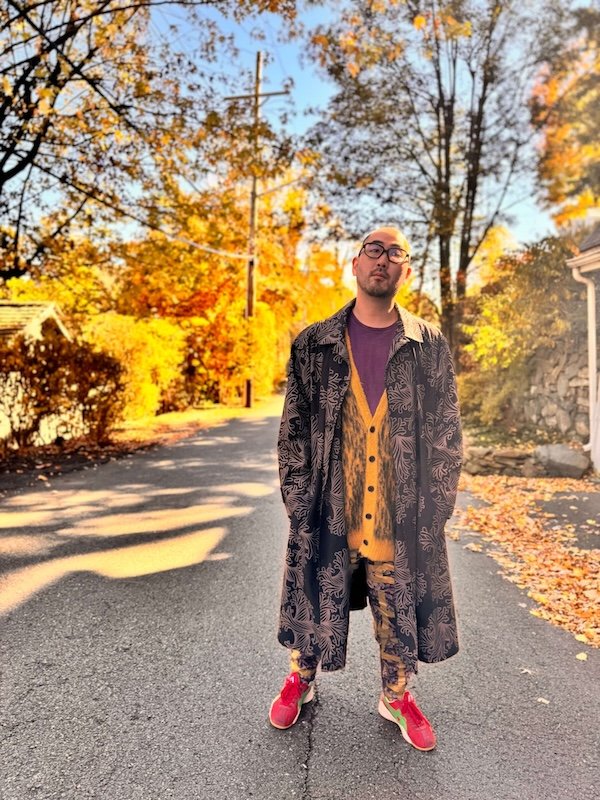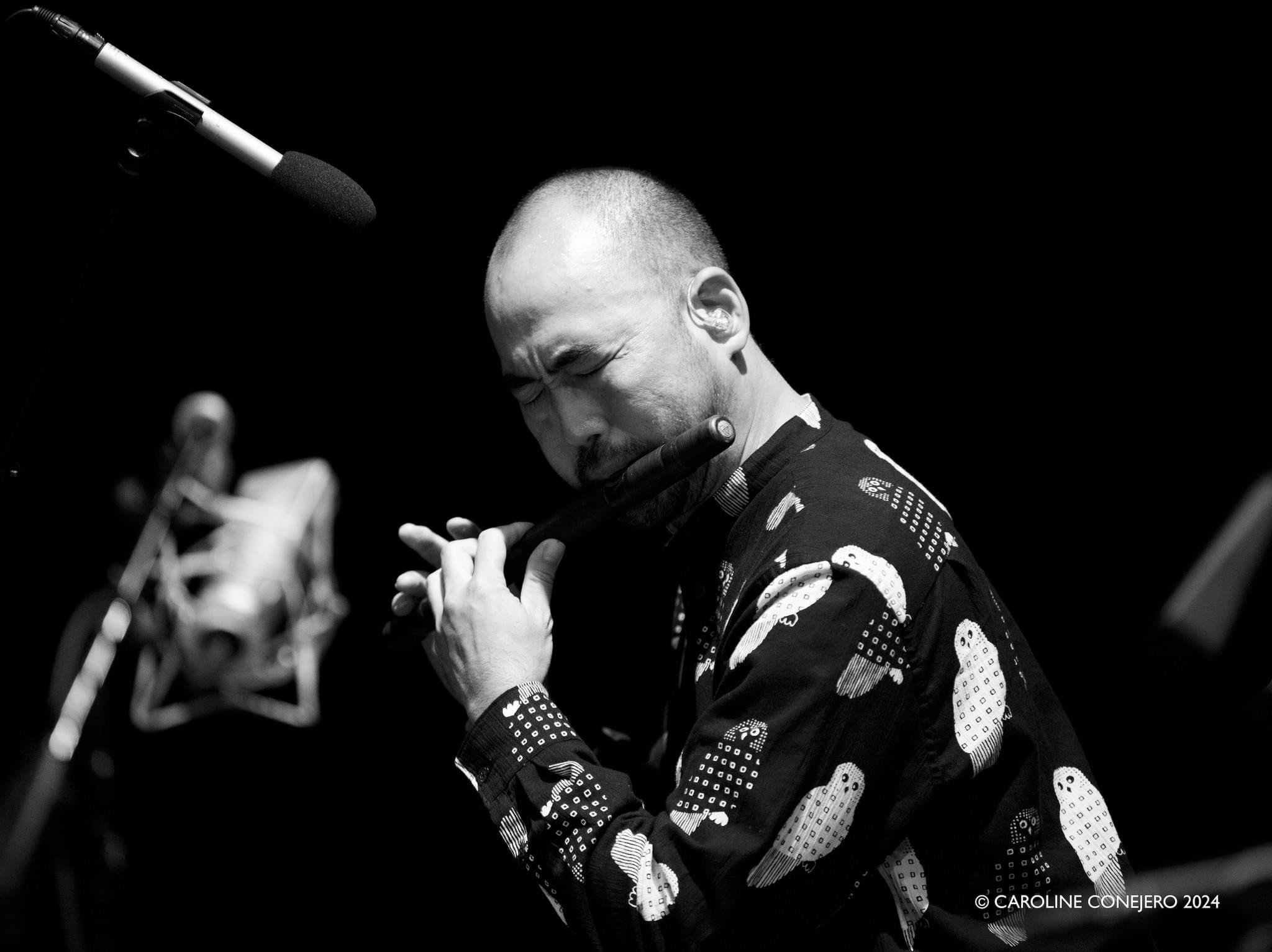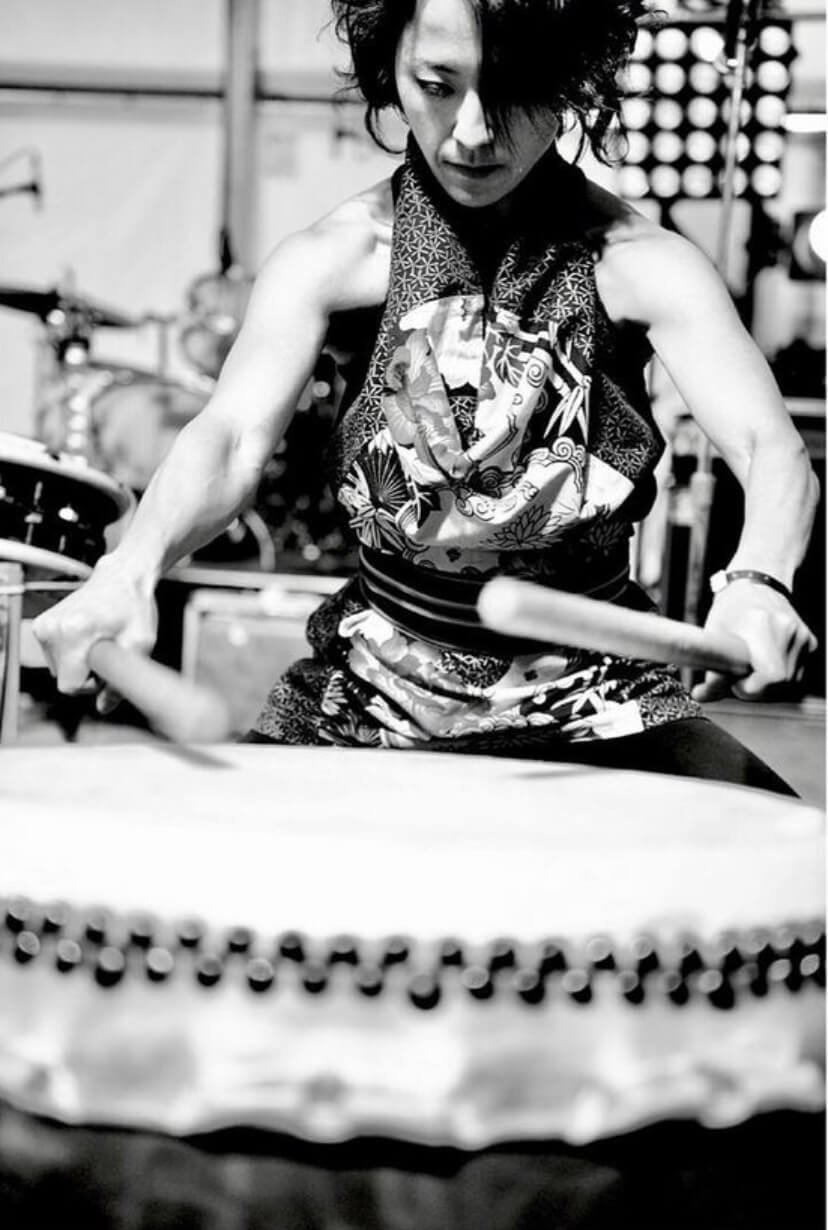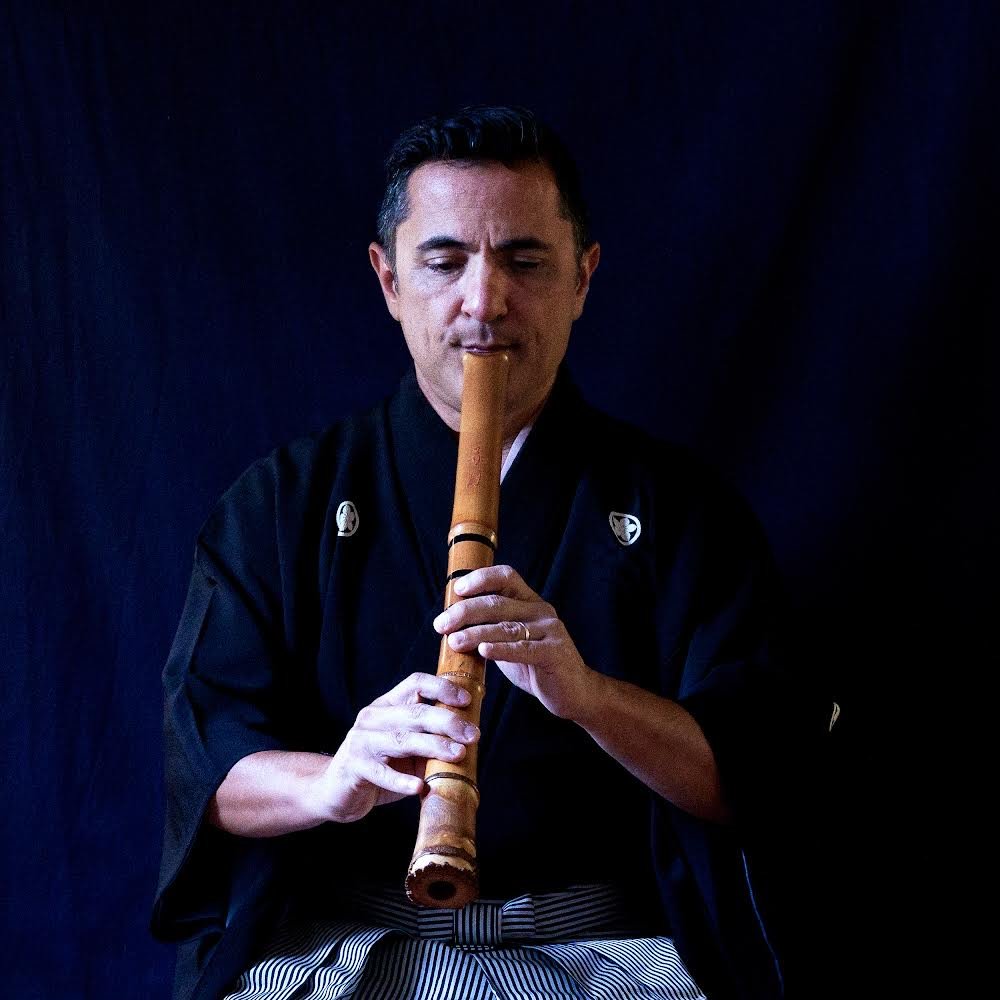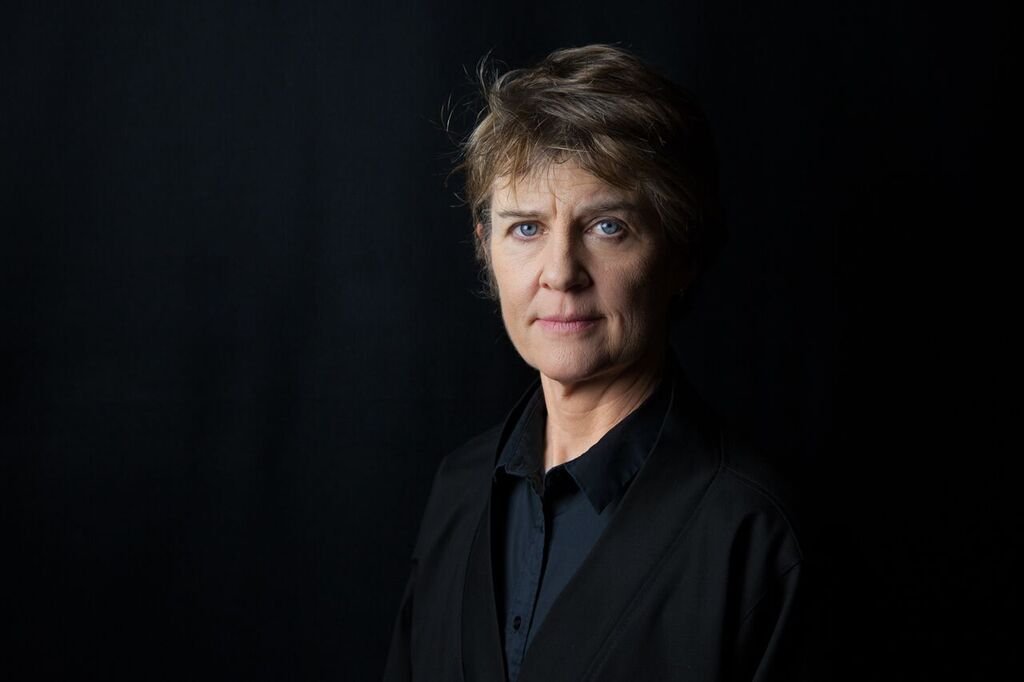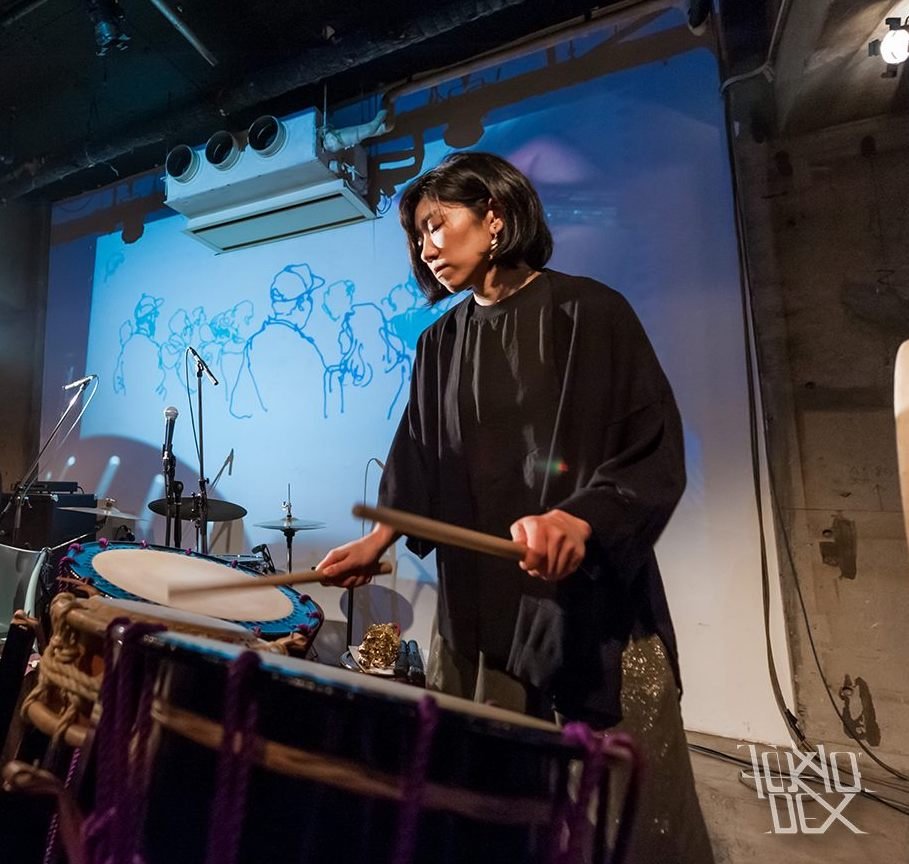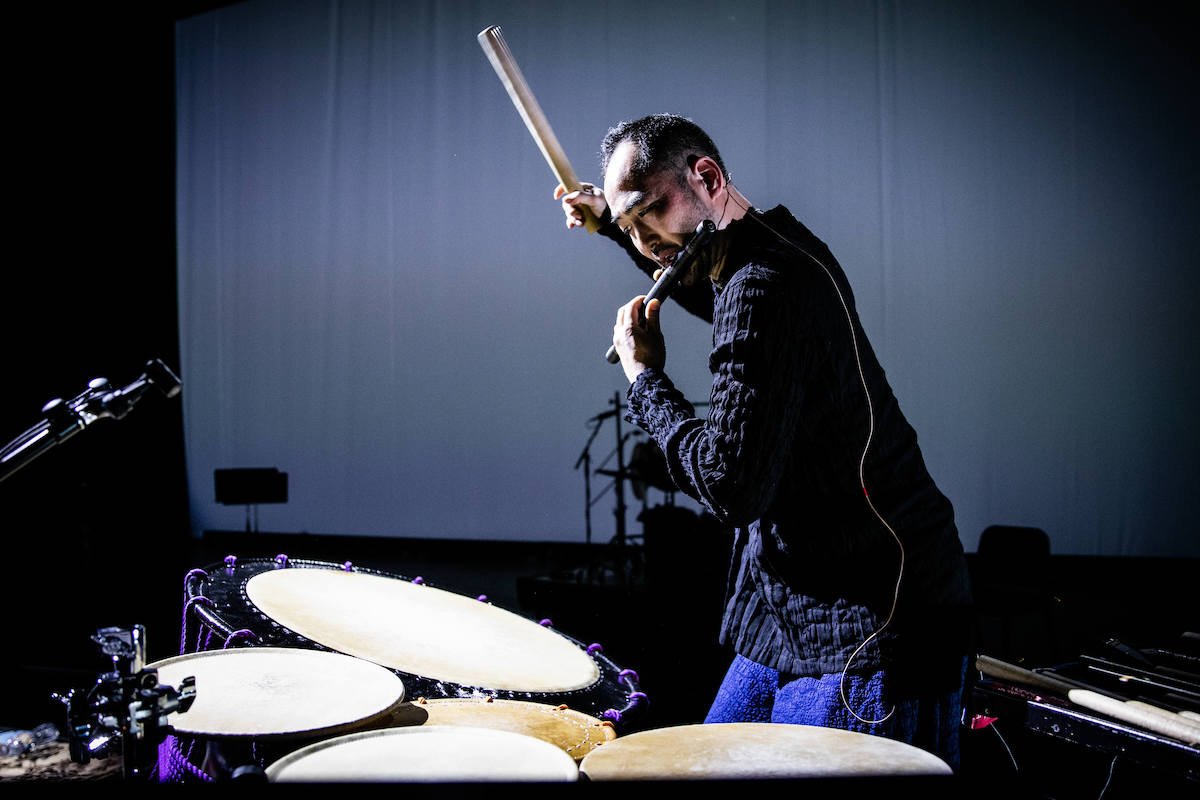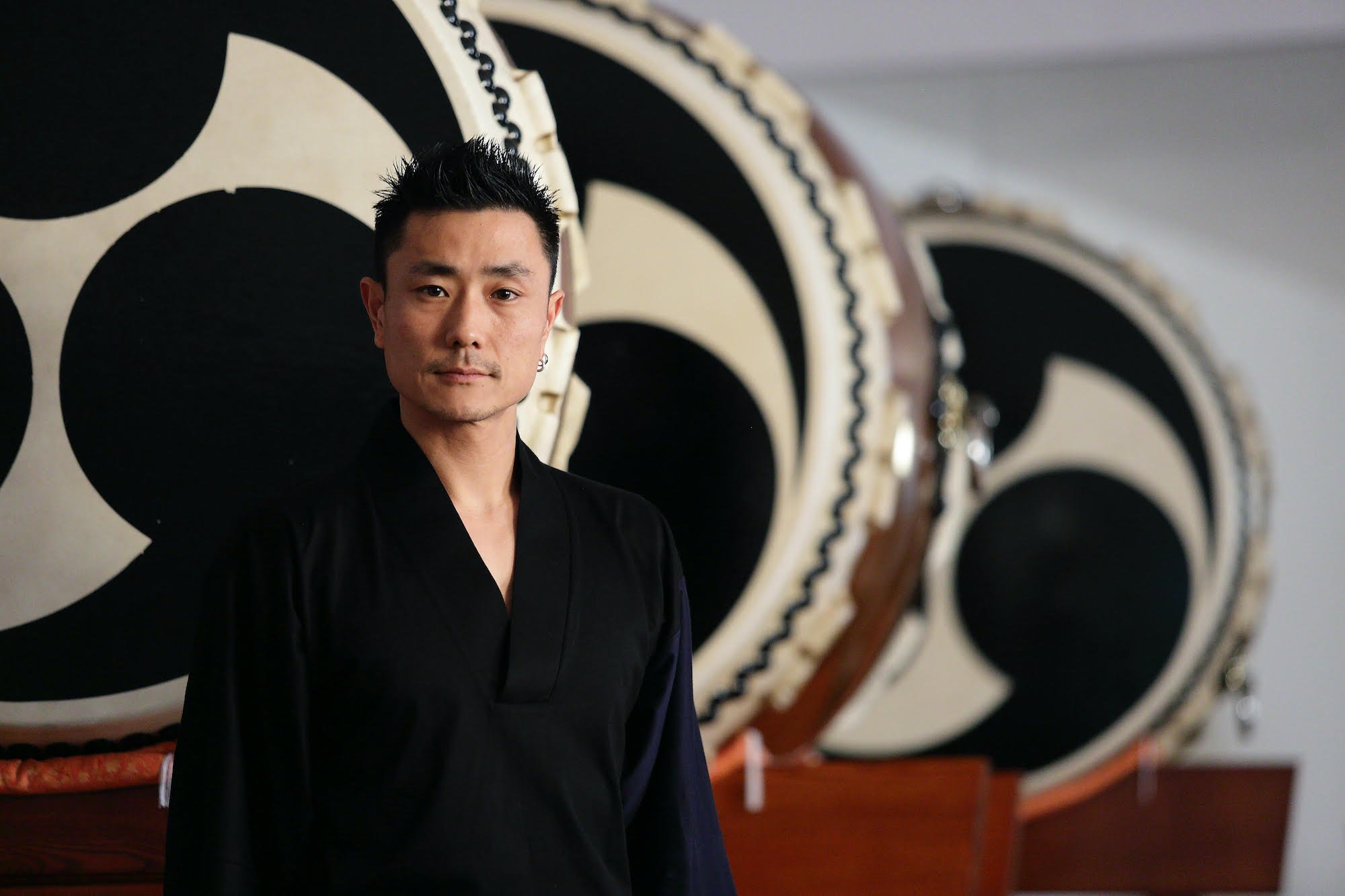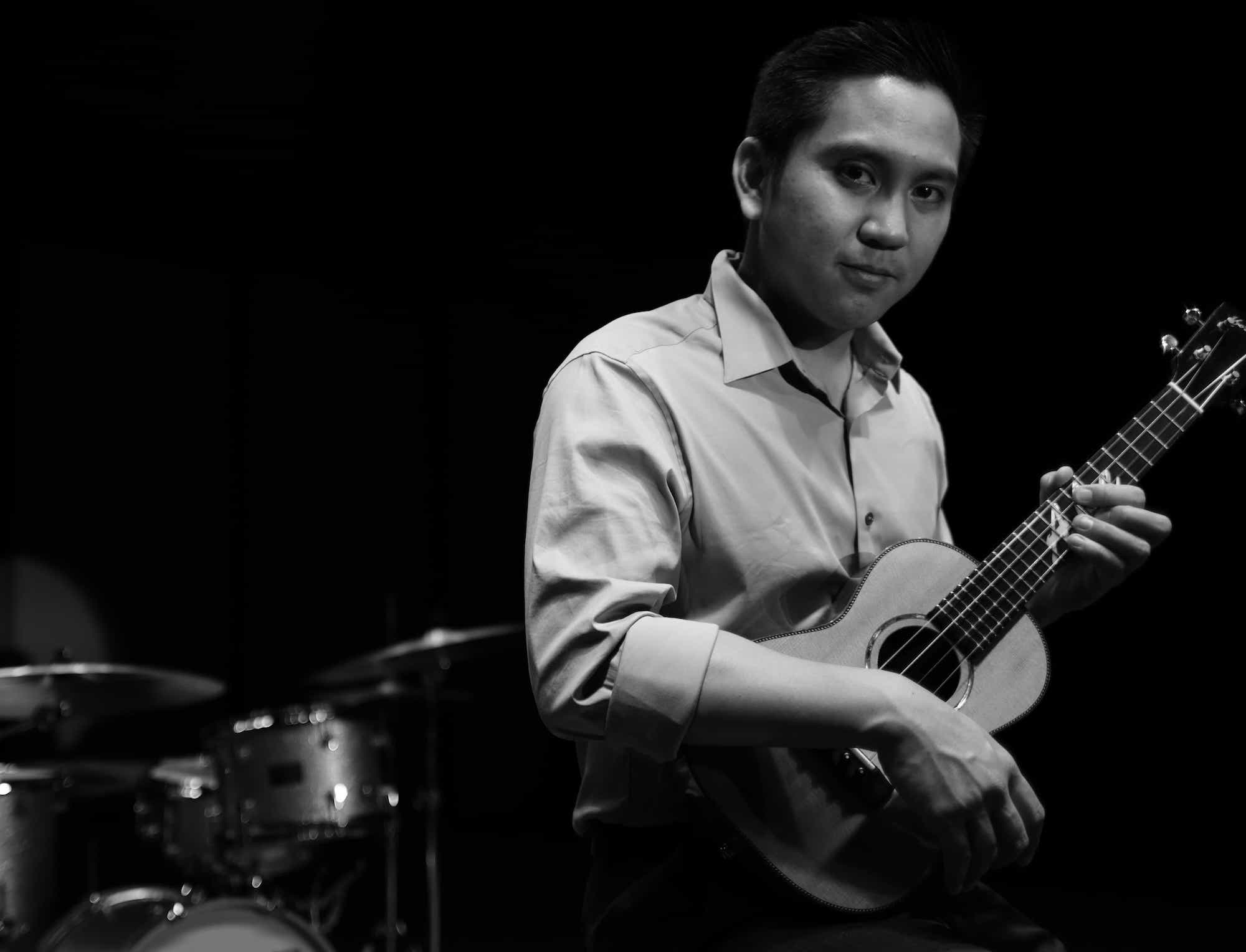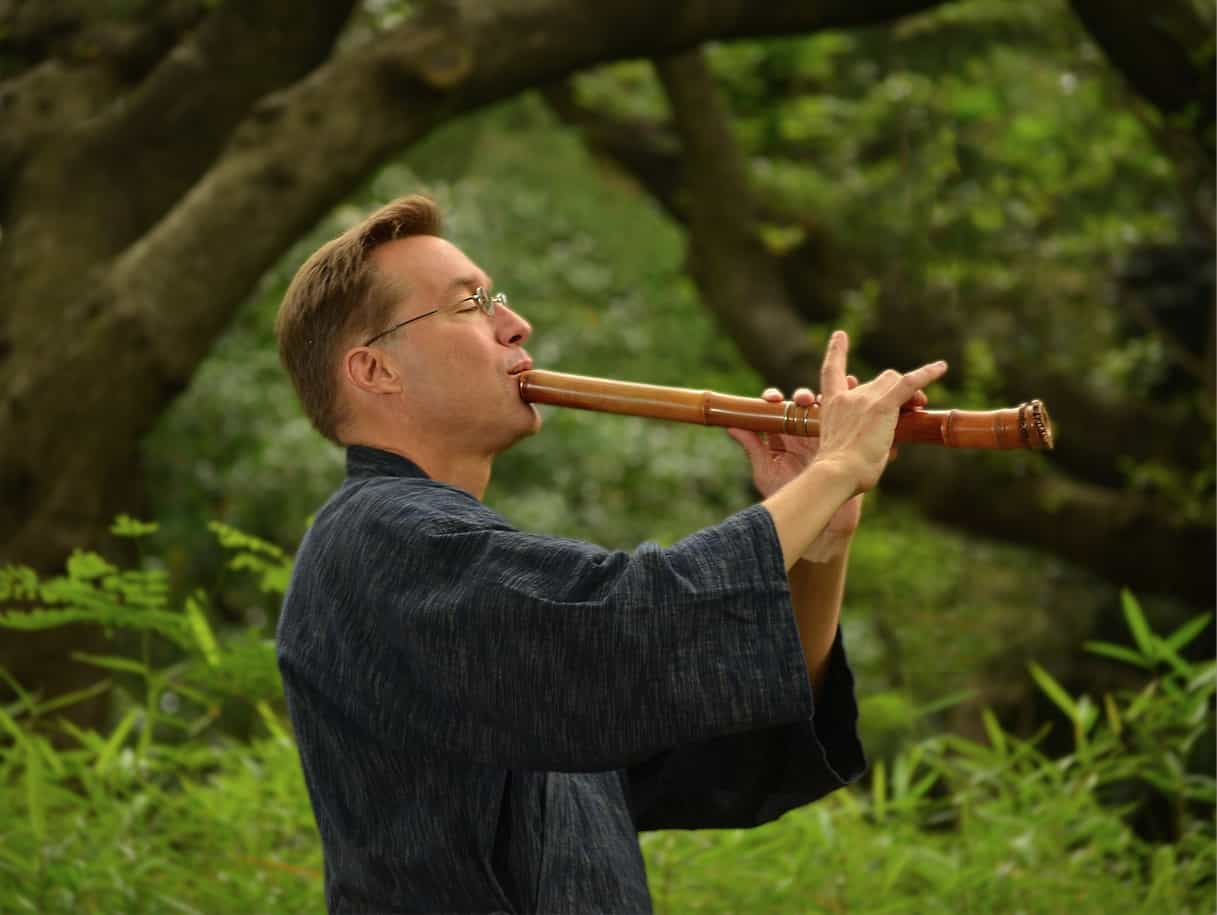Edo Bayashi & Shishimai expert Kyosuke Suzuki sensei

Suzuki sensei has been one of my most important teachers over the past ten years. My first opportunity to meet and work with him was during the Kenny Endo Taiko Ensemble 2005 tour and I remember being immediately struck by his deep commitment to the highest performance standard. North American audiences may know him best as the brilliant shishimai performer with a lengthy and life-like repertoire of choreographed actions such as playing with a butterfly, licking its leg, eating a mikan (tangerine), searching for food, and interacting with the audience. Although 'shishimai' is usually translated as 'lion dance,' Suzuki sensei has mentioned in workshops that the shishi (獅) is a mythological creature, not technically a lion. He also contemplated that the word 'dance' may be closer to odori (踊り) than mai (舞) because of the subtle differences in implication. This kind of detailed explanation is a great illustration of Suzuki sensei's dedication to the meaning of this traditional art form which helps us understand its context and perform it more appropriately. Anyone who has studied with him would likely agree that he is a masterly instructor who is kind and patient while never compromising his expectation of the highest artistic integrity.

Edo Kotobuki Jishi at 2011 NATC concert
Suzuki sensei is also an exceptional musician on Japanese flutes (nohkan, shinobue), taiko, atarigane, and piano. Based in Tokyo, he belongs to the acclaimed Wakayama Shachu, a performance troupe and school in the tradition of Edo Sato Kagura, recognized as an important intangible folk cultural asset by the Japanese government’s Agency for Cultural Affairs. It would be absolutely fantastic if someone was able to present the kagura performance by Wakayama Shachu in North America one day. Seeing performances and studying these traditional Japanese music forms have been invaluable to my own musical development, and I'm always encouraging other taiko and fue players to research and engage in the rich history of these instruments. One of my personal performance highlights was at the 2011 North American Taiko Conference evening concert where I appeared on stage with three of my teachers (Suzuki sensei, Saburo Mochizuki sensei, and Kenny Endo) for Edo Kotobuki Jishi.
Last summer, Yuta Kato (Asano Taiko US & Los Angeles Taiko Institute) and I worked to bring Suzuki sensei for a two-week teaching tour that included San Jose, Los Angeles, Portland, and Seattle. For much of this trip, I accompanied and translated his workshops and private lessons, covering Edo Bayashi (festival music of old Tokyo) and Edo Kotobuki Jishi (shishimai of Edo). I've also translated for Suzuki sensei on previous occasions, and the more I see his teaching, the deeper my appreciation for his approach becomes. His pace of instruction is fast, yet meticulous. His energy is usually greater than everyone else's combined as any workshop participant can attest to. And the session is truly free of extraneousness. His insistence on vocalizing music parts (kuchishoga) and his frequent demonstrations are my favorite parts of the workshop.
See videos and more info about Suzuki sensei here
I'm excited that Asano Taiko US in Torrence, CA is now selling the recommended fue, bachi, sheet music, and CDs for Edo Bayashi and Edo Kotobuki Jishi. These materials are used by Wakayama Shachu and recommended by Suzuki sensei. It's great that now anyone can order them from the Asano US online store.
See the recommended materials here
Please contact me or Asano Taiko US for questions about the instruments and to receive updates for future opportunities to study with Suzuki sensei. His workshops and lessons are always followed by enthusiasm and positive feedback, so the more people there are to join me as his fans, the more often we can invite him over to share his expertise with us.

